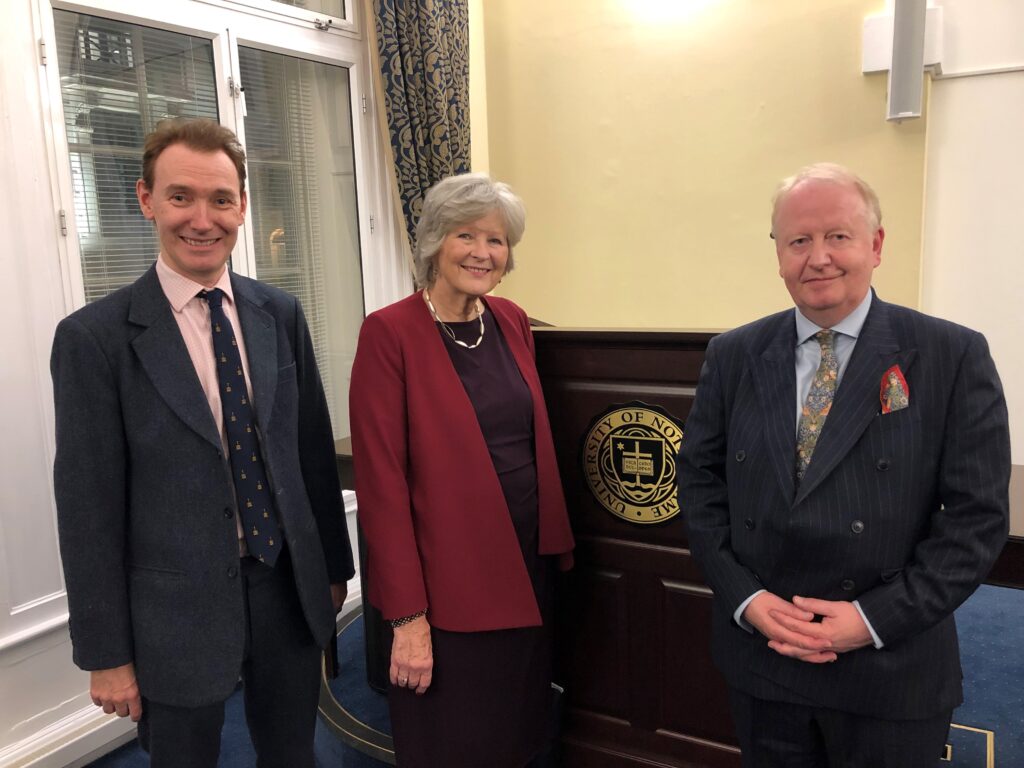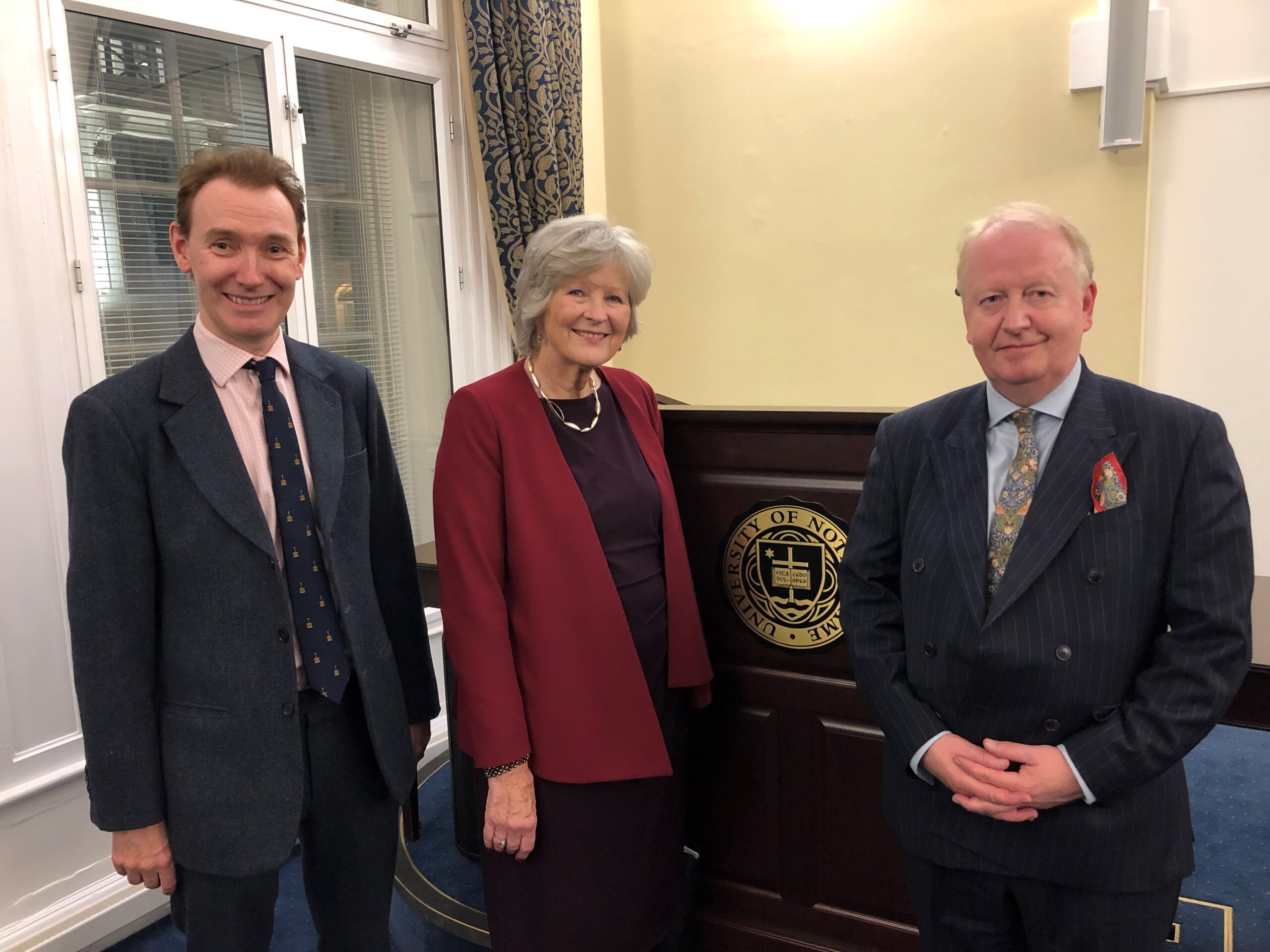
The Catholic Union’s annual Craigmyle Lecture was delivered on Monday 28 November by Baroness Hollins. She spoke about her experience of dealing with issues of abuse in the Church, including serving on Pope Francis’s Commission for the Protection of Minors.
Following the Independent Inquiry into Child Sexual Abuse (IICSA), Baroness Hollins told the audience at the University of Notre Dame in London that a “culture change” was needed. She said that leaders in the Church needed to get better at listening because “if people can’t hear, they won’t tell.”
The final report from IICSA, published in October this year, highlighted a number of concerns about safeguarding in the Catholic Church in England and Wales. Baroness Hollins said “we [the Church] shouldn’t complain if we’re being picked out as an example… We should expect more from the Catholic Church.”
Baroness Hollins, who is a renowned psychiatrist and former President of the BMA, said that a lot of people were trying to improve practices in the Church and there was a much better understanding of mental health. “Don’t be disheartened” she said, “it will begin to get better.” Although she also acknowledged that in other parts of the world, abuse claims hadn’t even begun to be addressed.
Asked about mandatory reporting and the confessional, Baroness Hollins said that the Church already requires people to act immediately to prioritise the protection of minors and vulnerable adults over the protection of the accused or the reputation of the Church. She acknowledged that this is a difficult issue, and suggested that confessors could learn a lot from how psychotherapists respond to a patient when they learn that someone has been hurt or is in danger.
She went on to say that in the past the Church had seen sexual abuse as a sin but it is now considered a serious crime in canon law. In jurisdictions which recognise the abuse of children and vulnerable adults as a crime, and have legislated for the mandatory reporting of such crimes, Church authorities must fully comply with such legislation.
She also explained that human formation is one of the four pillars of priestly formation and that more could be done to develop the relational and psychological skills of priests during initial and continuing formation.
Baroness Hollins comments: “I was glad to have the opportunity to give this year’s Craigmyle Lecture. I know for many people in the Church, and perhaps some listening to my talk, this subject is deeply personal. We are seeing things change in the Church, and I’m pleased to be playing a small part in that. But culture change in any institution is no easy task and there is no one size fits all approach. It’s vital that we learn to listen to those who have been abused. That’s why public meetings and talks on this subject are so important. As we listen, we will learn from each other and only then be able to move forward.”
Nigel Parker, Director of the Catholic Union, comments: “The subject of this year’s Craigmyle Lecture is a difficult one, but one which the Church needs to address. We’re extremely grateful to Baroness Hollins for sharing her insights and professional expertise with us. More broadly, we’re grateful to her for the work she continues to do in this crucial area. I know many people in the audience and watching online will have reflected on the tragedy of abuse but will also have been given hope by what she said. The Catholic Union will continue to build on our long history of leading public discussion on matters of interest to Catholics in this country, including in a new series of ‘Pub Talks’ to be launched next year.”

